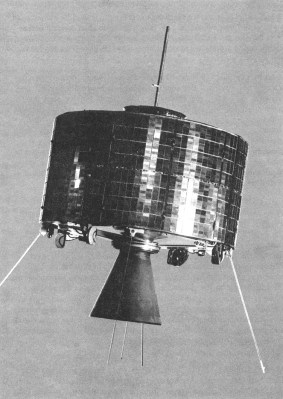The grounds at the 1964 Tokyo Summer Olympics.

NASA
The 1964 Summer Olympics in Tokyo ignited the intense athletic rivalry between the U.S. and the Soviet Union. Attorney General Robert F. Kennedy told President Johnson that the U.S. needed to ramp up its athletic program because losing to the Soviets would make the Communist bloc look stronger than America. “In this day of international stalemates nations use the scoreboard of sports as a visible measuring stick to prove their superiority over the ‘soft and decadent’ democratic way of life,” he said. On May 18, 1964, Johnson received a memo proposing the use of NASA’s Syncom II satellite to telecast the games to the states. White House aide Horace Busby chimed in and told LBJ that a successful telecast would make the Democrats look good in the eyes of younger voters. So on October 7, the President made the telecast official, and the 1964 Games became the first Olympics to be broadcast internationally.
